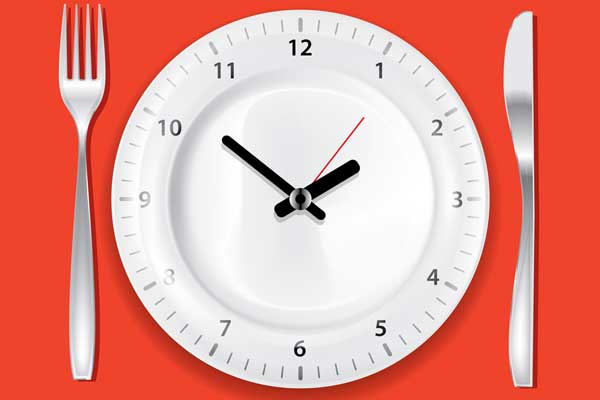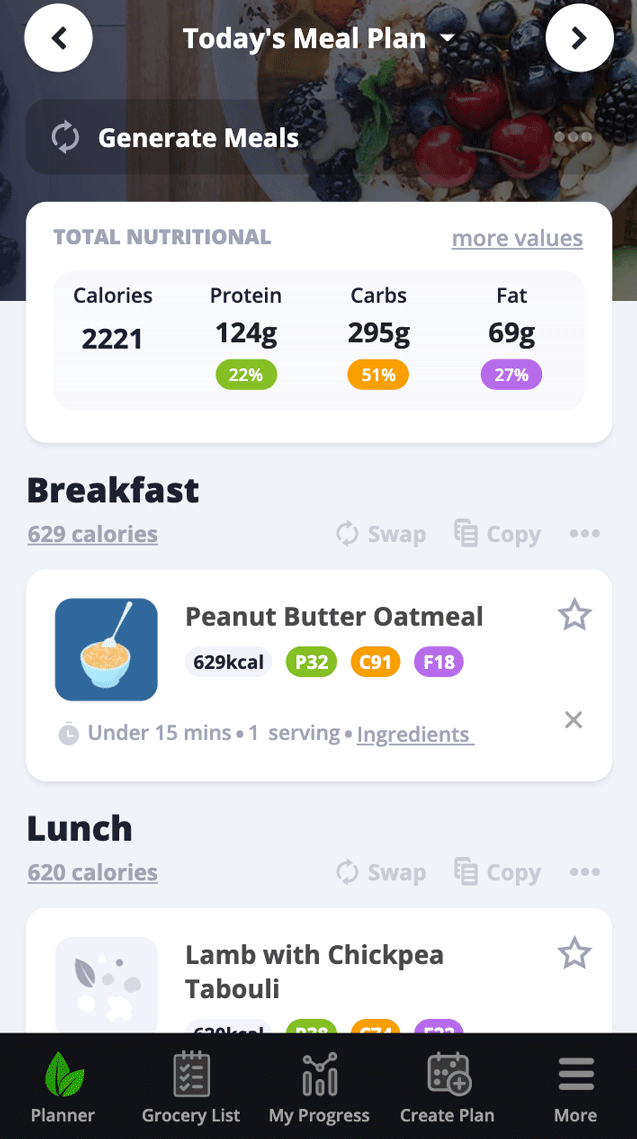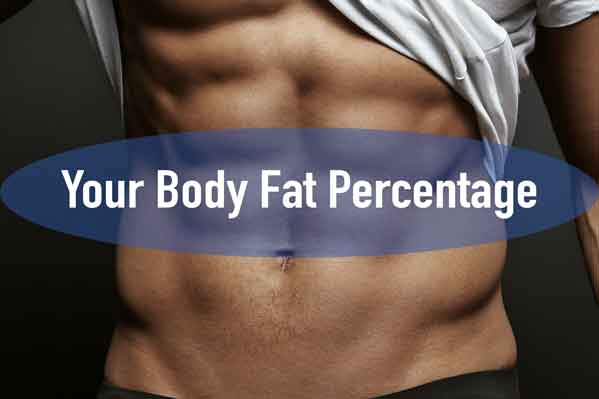Intermittent Fasting For Weight Loss

Intermittent fasting is a diet that goes against a commonly held view over the years that in order to lose weight you must eat little and often, and especially don't skip your breakfast. If you're interested in getting to know more about it, here are some basic things you should know about this increasingly popular dietary approach.
Topics covered in this guide
What is Intermittent Fasting?
Different types of Intermittent Fasting
What to eat during Intermittent Fasting
Benefits of Intermittent Fasting; is it Safe?
Can Intermittent Fasting help you retain muscle?
Are there any side effects to Intermittent Fasting?
Will I need supplements during IF?
Making IF work for you
What is Intermittent Fasting?
First and foremost, it is important to know that Intermittent Fasting is not a diet but only a dieting pattern. What this means essentially is that you will be following a circular pattern of fasting and then eating. There are quite a few fasting methods that people like to follow, that we will be mentioning later on.
The most common “fast” people do on an everyday basis, possibly without even realizing it, is eating during the day and then fasting while they sleep. Intermittent Fasting allows you to further the fasting period a little longer and helps you see some amazing results in weight loss in quite a short amount of time.
During your fasting time, you are not allowed to consume any food, except for some liquids that contain no calories. The whole point of this diet plan is to help you limit your calorie intake as you will only be eating during particular times of the day.
Can Intermittent Fasting speed up your metabolism?
Many professionals support the fact that Intermittent Fasting can really help speed up your metabolism and help you increase your chances of achieving long-term weight loss. Studies have shown that one of the ways Intermittent Fasting can help you experience more weight loss is by increasing the amounts in which some hormones are produced, which are linked to fat burning.
What we all know is that prolonged periods without food will definitely cause your basic metabolic rate to drop in order for your body to be able to save energy. On the other hand though, studies have shown that short periods of fasting can actually help increase your metabolism. Therefore, Intermittent Fasting can truly help you out by giving your metabolic rate a little boost that can prove quite useful in your weight loss journey.
For how long can you follow this Fast?
Intermittent Fasting is not considered to be a quick fix. This is a diet pattern that you will have to stick to in order to see some good results. Studies have shown that a minimum of 10 days is needed just for the body to start getting accustomed to the new dietary regimen.
So far, there are no studies supporting that IF should only be done for a particular amount of time. You can fast for as long as you want to, always depending on what you are trying to achieve. As long as the diet you follow is balanced, you have nothing to be afraid of.
Summary: Intermittent Fasting is a type of dieting pattern that aims to reduce your meal frequency as well as your calorie intake. It can help you achieve a number of health benefits such as a reduction in insulin resistance and aid your weight loss so you can experience fast results.
Different types of Intermittent Fasting
There are definitely more than one ways in which you can follow this fast. The best thing here is that there is no right or wrong. It all depends on what will work best for you and which will help you achieve the best results.
The 16/8 Method
This method includes a fasting period of 16 hours and an eating window of 8 hours. This is usually the method most people use once they get started with IF. This method allows you to eat 2-3 main meals as well as some snacks while your “eating window” lasts.
This can easily be achieved if you manage to either skip breakfast or eat a very early dinner. You will still have enough time during the day to eat plenty of calories and you will feel the least tired and hungry on this method.
The 20/4 Method
This is a much stricter way of approaching Intermittent Fasting. Most people who decide to take this on, usually start on the 16/8 plan, and gradually increase the hours that they fast. The 20/4 method is definitely not one that anyone should jump right into as it can be very difficult to follow and can end up making you feel completely unmotivated.
Because the eating window is so small, you really won't have enough time to eat more than 1-2 meals per day. Most people will eat some snacks and focus on eating a big meal that contains most of the calories they need for the day. Therefore, it can help you reduce the calories you consume even more and that will result in a bigger amount of weight loss.
The 5:2 Plan
The 5:2 diet plan consists of normal eating for 5 days of the week and then two days of extreme calorie restriction. Most people who follow this diet do not consume more that 500-600 calories during their fasting days.
The best way to go about this is to split your meals in two 250 to 300 calorie meals during the days that you fast. This will help you feel fuller for longer and it will also help you go through the fast easier. Snacking will simply not fill you up enough and you will not feel all too well either.
Learn more about The 5:2 Diet here
Eat-Stop-Eat
This is another method that many people use that is also quite difficult to follow. This involves a 24h fast which you can do once or twice a week. Now, this is definitely not for everybody and you should be well prepared that such an intense fast will make you feel weak, sleepy and very low in energy during the day or days that you do not consume any food.
In order to make this easier for you, you should probably follow the same principle that people use in order to achieve the 20/4 method; start by doing 14-16 hours of fasting and then gradually increase them. It is important that you follow a balanced diet during the days that you do not fast so you do not hinder your weight loss progress.
Alternate Days Fasting
This method is quite difficult to sustain and it is definitely not recommended for beginners. Alternate Days Fasting pretty much means fasting every other day. Now, there are many ways to adapt this to your own preferences. If you cannot fast for long, you can start by following the 16/8 fast and then again, gradually increase the time of your fasts.
Some versions of this allow around 500 calories during the days of the fast and others even support a full day fast. That can be quite difficult to follow though and that usually leads in people giving it up as, going to bed hungry every other night is not always the best feeling.
The Warrior Diet
This plan consists of a 4 hour window in which the person following it allowed to feast on a huge meal for dinner. The difference to the 20/4 model is that in this diet, you are allowed to eat small amounts of fruit and vegetables during the day.
Another thing about this diet is that it really emphasizes food choices that are similar to a paleo diet. This pretty much means unprocessed foods that are as close to the natural thing as possible. Even though this can be a challenge to follow, the big meals at the end of the day will be very rewarding and you will be feeling your best since you will only be consuming unprocessed and whole foods.
Skip Meals
The whole point of this model is quite simple: chose one meal to skip out of your day. This is a great tip for beginners who want to start getting used to the idea of fasting and want to keep it simple.
A great way to make it easier for you to follow is to eat whenever you're hungry. For example, if you're not hungry in the morning, don't eat breakfast that day. By keeping this up, you will be able to see what works best for you and you will be able to adjust a lot easier to more difficult types of fasting.
Which is the best for weight loss?
As we mentioned earlier, each person just has to choose which one model of Intermittent Fasting works the best for them. It would be best if you went ahead and tried the ones that you believe will be the easiest for you to follow. As long as you are restricting calories correctly and keeping up the fast, you will see results with every plan.
The most important thing in every type of fast is to make sure that you are getting the proper nutrition you need so you do not end up having any deficiencies that can not only make you feel weak and tired but also hinder your weight loss.
Summary: There are many different types of Intermittent Fasting. The best way to find what's best for you is to give some of them a try and see how your body reacts to them. Do not push yourself to follow the fasts that last the longest if you are still a beginner.
What to eat during Intermittent Fasting
As Intermittent Fasting is not actually a diet, there are not really any foods you should or shouldn't eat; it's all about when you eat them. The basic principle of IF is calorie restriction and particular eating windows. As long as you are following these, you are still going to experience weight loss.
If you wish to see even better results and further help your health become better, one of the best things you can do in order to achieve greater weight loss is to follow a ketogenic diet.
The only thing you need to remember here is that during your fasting hours, you are not allowed to consume anything that contains any calories.
On the other hand though, there are some liquids you can consume such as:
- Water
- Coffee
- Tea
These can really help you curve your hunger, especially during the first few days of your fast and they will help you keep going and feel more energized when you need it.
Summary: The whole point of Intermittent Fasting is not to restrict what you eat but when you eat it. Studies have shown that a ketogenic diet can truly help intensify your weight loss while on IF.
Benefits of Intermittent Fasting; is it safe?
The Intermittent Fasting plan has been proven to be safe and actually very helpful when it comes to increasing resistance to age related diseases as well as improving the health of overweight people.
Intermittent Fasting can enhance cardiovascular and brain functions and also improve a lot of many risk factors for coronary artery disease and strokes. It helps reduce blood pressure as well as increase insulin sensitivity.
Intermittent Fasting for fat loss
Probably the number one benefit most people are going after is the weight loss that IF offers. IF will truly help you notice a huge difference on your body and that is mainly because it truly helps you burn fat a lot easier.
The biggest amount of fat loss has been noticed around the belly for most people who participated in this diet plan. At the same time, it will help you preserve lean body mass and therefore help you see results a lot quicker.
Decreasing Insulin Sensitivity
Insulin is one of the main hormones that is affected straight away by Intermittent Fasting. It is one of those hormones that tells your body when to store fat and it also stops your body from breaking the fat it has stored down. High levels of insulin in your body can really make it hard for you to lose weight in the long run.
Studies have proven that Intermittent Fasting can help your body increase its insulin sensitivity. This will not only help you lose weight easier, but it will also protect you from type 2 diabetes, especially if you are prediabetic or have a family history of type 2 diabetes.
Anti-aging effects
Studies have shown that a combination of Intermittent Fasting and Calorie Reduction can help reduce the oxidative damage that happens to our cells and also increase their cellular stress resistance.
Aging is said to occur in our bodies when oxidative stress more or less causes the mitochondria in our cells to become damaged and therefore produce bigger amounts of a type of oxygen that just keeps destroying more and more cells. So, the more resistant your cells are to oxidization, the more they will be able to protect themselves from free radicals and therefore help you look younger for longer.
Increase in HGH
The Human Growth Hormone is another one of those hormones that play an important part in weight loss. Not only do higher levels of HGH in the blood promote fat burning, but they also help us preserve muscle mass.
Studies have shown that people, who are following an Intermittent Fasting plan, particularly men, can have a very increase of the HGH during the hours that they fast. It is unclear though if women are experiencing the same results.
Summary: Intermittent Fasting has a lot of benefits to offer. Not only will it help you lose fat and better produce some helpful hormones, but it can also help protect you from a lot of potential health issues.
Can Intermittent Fasting help you retain muscle?
This is a very common question to be asked. Most traditional diets help you lose fat but along with that you end up losing a lot of muscle too. The best thing about retaining your muscle tissue is that it is metabolically active and it therefore helps you use more calories as it tends to keep your basic metabolic rate high.
The good things about the Intermittent Fast is that it does indeed help you retain your fat-free mass. This is said to happen as during IF a lot of fat burning hormones are being produced in higher amounts. The HGH especially can truly help you retain your muscle mass even though you're losing fat.
Are there any side effects to Intermittent Fasting?
The side effects that you experience while you are fasting are all more or less the same. A short number of people participating in studies have reported particular side effects, such as:
- Feeling Dizzy
- Tired
- Less Energetic
- Cold
- Irritable
- Hungry
This is why it is important to give yourself some time to adjust to the fast. Don't try diving into the 20/4 model or the 24 hour fast. This will simply make you give it up and correlate this diet pattern with the negative effects of hunger.
Will I need supplements during IF?
Supplements will usually not be needed in Intermittent Fasting models. While you are fasting and you are restricting a lot of calories, you can always make up for everything that you need through a balanced diet.
If you are following a longer fast, it would be a good idea to consume drinks that contain electrolytes as well as some important vitamins that will help you stay hydrated and ease the symptoms of the fast.
Making IF work for you
It is very important that you make the right combinations and choose your meals appropriately in order to be able to consume all the calories you need during your eating windows.
If this sounds like too much work to you and you simply want to give this diet plan a try, you can always use our Meal Planner in order to help you out with everything that you might need.



